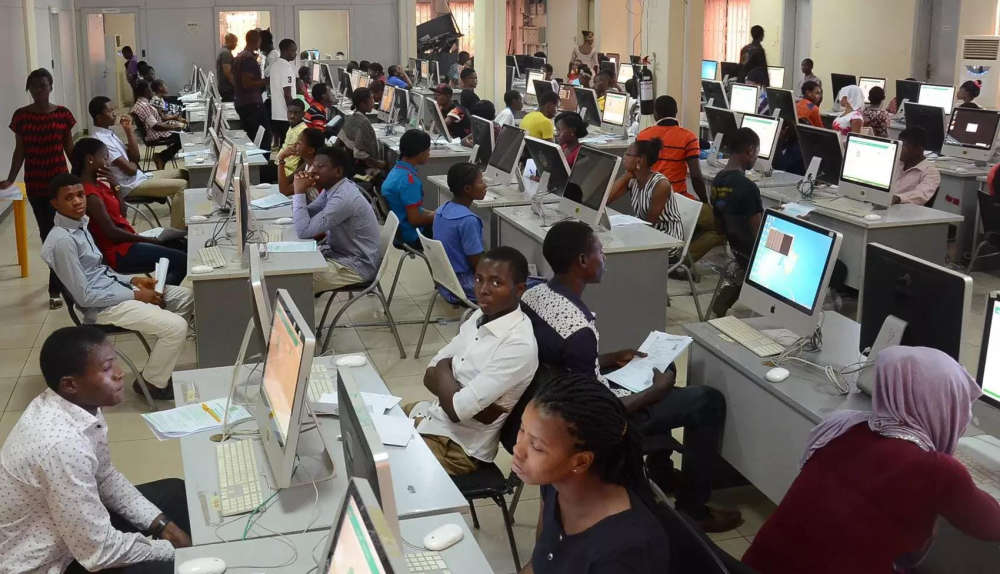Africa
Why Students Consistently Fail JAMB -By Muhammad Auwal Ibrahim
Only a few states, like Jigawa, have developed education sector plans and consistently allocate significant budgetary resources to education. Unfortunately, for many others, education is a neglected priority, overshadowed by white elephant projects like flyovers and government house construction.

The recently released 2025 Joint Admissions and Matriculation Board (JAMB) Computer-Based Test (CBT) results have sparked widespread concern, with only 25% of candidates scoring 200 out of 400 or higher. This is not the first time such disappointing results have been recorded, yet the public’s reaction suggests a sense of shock, as though it is an unprecedented occurrence. The truth is, Nigeria has been grappling with poor JAMB results for years, with universities consistently lowering cut-off points to accommodate students. But what is the root of this problem?
Contrary to popular belief, the issue extends beyond the distractions of TikTok or social media. As a media major, I understand the disruptive potential of media, but blaming social platforms alone is overly simplistic. I previously explored this topic in an article titled “Of JAMB, Poor Results and Hijabophobia,” in 2021, during a similar public outcry over JAMB results.
Drawing on my years of experience covering the education sector in Gombe, I can confidently state that the crisis goes deeper, rooted in Nigeria’s basic education sector. It is an open secret that parents who can afford it send their children to private primary schools, not out of preference but because they desire a brighter future for their children. Public primary schools, once the backbone of basic education, have become the last resort for those with no alternatives. But why has this happened?
The answer lies in the declining quality of public education, driven by poorly trained teachers, inadequate facilities, and an unconducive learning environment. As living standards plummeted, so did the standard of education. This downward spiral went largely unnoticed until the consequences became impossible to ignore.
From my extensive reporting across Gombe State, I have witnessed the challenges firsthand: teacher shortages, dilapidated classrooms, lack of educational materials, and overcrowded schools. In some cases, even where infrastructure exists, the absence of motivated teachers or proper welfare renders it ineffective.
Gender disparities further complicate the situation, with many girls struggling to access education due to inadequate WASH (Water, Sanitation, and Hygiene) facilities. Despite the importance of gender-responsive education sector planning, many states, including Gombe, operate without such a framework.
Only a few states, like Jigawa, have developed education sector plans and consistently allocate significant budgetary resources to education. Unfortunately, for many others, education is a neglected priority, overshadowed by white elephant projects like flyovers and government house construction.
Moreover, the growing difficulty of engaging in examination malpractice due to stricter monitoring in JAMB’s CBT has exposed the weak foundational knowledge of many students. For too long, students relied on “expo” (cheat notes) rather than genuine learning.
It is time to acknowledge that the problem is multi-dimensional. Yes, students must take their studies seriously, but the government must also address the systemic failures in basic education. Parents, too, have a role to play by guiding and mentoring their children toward academic success.
Perhaps parental negligence or a lack of effective mentorship contributes significantly to these outcomes. Even acknowledging governmental failures, proactive steps can still be taken to bolster educational quality, particularly with JAMB in mind.
Many organize extra-mural classes (JAMB tutorials) to help students achieve excellent results. However, it’s questionable how many students facing difficulties actually register or attend these. This is not a must if one can study on his own. During our time, I and my classmates didn’t attend but these opportunities could significantly benefit struggling public school students, allowing them to improve and secure their futures.
Allowing students to pursue their interests is crucial for motivation and exam success. Passion fuels purpose. Forcing students into fields like medicine against their will can hinder their performance. While not the primary cause of this year’s results, it could affect individual candidates.
The argument that today’s JAMB candidates exhibit a diminished seriousness towards their education, mirroring a perceived governmental apathy, deserves serious consideration. Even private school students may not dedicate sufficient effort for success in rigorous exams like JAMB.
The pervasive influence of social media, TikTok in particular, as a significant distraction is hard to ignore. The sheer number of young people engrossed in these platforms, enabled by readily available smartphones, presents a clear challenge.
However, smartphones and social media also offer learning opportunities. TikTok, for example, hosts educational content from tutors across various subjects, accessible through STEM feeds. Serious students can leverage this unprecedented resource.
Beyond social media, a decline in reading culture, or simply laziness, is evident. Many students today avoid studying, even with AI tools available. This is a luxury we never knew, yet it seems to be taken for granted.
Ultimately, while students bear the full responsibility for their JAMB excellence, the often-understated role of government, alongside the influence of parents and society, remains a critical factor in understanding student failure.
Muhammad Auwal Ibrahim is an award-winning investigative journalist and a 2024 Change Reporting Fellow at ImpactHouse Centre for Development Communication. He can be reached via awwalbinibrahim@gmail.com.






















